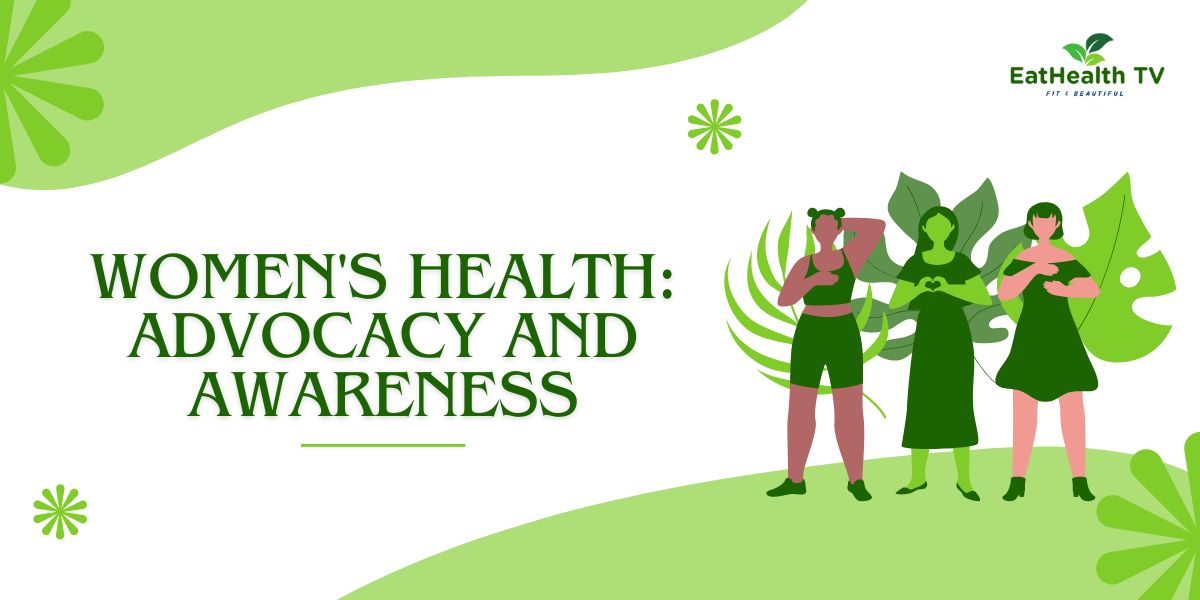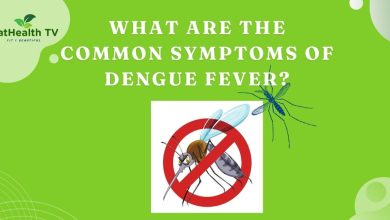Women’s Health: Advocacy and Awareness
Empowering Change: The Power of Women's Health Advocacy and Awareness

Women’s Health: Advocacy and Awareness
Women’s health is a critical aspect of public health that encompasses a wide range of issues, from reproductive health to mental well-being. Despite significant advancements in medical research and healthcare access, women still face unique challenges and disparities in healthcare outcomes. Advocacy and awareness efforts play a crucial role in addressing these issues and improving the overall health and well-being of women around the world. In this comprehensive guide, we’ll explore the key aspects of women’s health advocacy and awareness, from understanding the major health issues women face to examining the role of advocacy organizations and the importance of education and empowerment.
Understanding Women’s Health
Women’s health encompasses a broad spectrum of physical, mental, and social well-being concerns that are unique to women or more prevalent in women than men. Some of the key areas of women’s health include:
1. Reproductive Health
Reproductive health includes issues related to the female reproductive system, such as menstruation, pregnancy, childbirth, and menopause. Access to reproductive healthcare services, including contraception, family planning, and maternal health services, is essential for women’s overall health and well-being.
2. Breast Health
Breast health involves the prevention, detection, and treatment of breast cancer and other breast-related conditions. Regular breast self-exams, clinical breast exams, and mammograms are crucial for early detection and treatment of breast cancer, which is the most common cancer among women worldwide.
3. Mental Health
Mental health issues, including depression, anxiety, and eating disorders, disproportionately affect women. Social and cultural factors, as well as biological factors such as hormonal fluctuations, contribute to the higher prevalence of mental health disorders in women. Access to mental health services and support is essential for addressing these issues and improving women’s overall well-being.
4. Cardiovascular Health
Cardiovascular disease is the leading cause of death among women worldwide, yet it is often underdiagnosed and undertreated in women compared to men. Awareness of heart disease risk factors, such as smoking, obesity, and high blood pressure, is crucial for preventing cardiovascular disease and promoting heart health in women.
5. Sexual Health
Sexual health encompasses physical, emotional, mental, and social aspects of sexuality and sexual well-being. Issues such as sexually transmitted infections (STIs), reproductive rights, and access to comprehensive sexual education and healthcare services are vital components of women’s sexual health.
The Role of Advocacy Organizations
Advocacy organizations play a vital role in promoting women’s health and advancing policies and initiatives that address women’s health issues. These organizations work to:
- Raise awareness about women’s health issues and disparities.
- Advocate for policies that promote access to affordable and comprehensive healthcare services for women.
- Support research initiatives aimed at improving understanding and treatment of women’s health conditions.
- Empower women to take control of their health and advocate for their rights.
Some prominent women’s health advocacy organizations include the American College of Obstetricians and Gynecologists (ACOG), Planned Parenthood, the National Women’s Health Network (NWHN), and the Women’s Health Initiative (WHI).
Key Women’s Health Issues
1. Maternal Mortality
Maternal mortality, or the death of a woman during pregnancy, childbirth, or within 42 days of termination of pregnancy, is a significant concern worldwide. While maternal mortality rates have declined globally over the past few decades, significant disparities exist, with women in low-income countries and marginalized communities facing the highest risk.
2. Reproductive Rights
Reproductive rights encompass a woman’s right to make informed decisions about her reproductive health, including the right to access contraception, abortion, and maternity care services. Access to reproductive healthcare services is essential for women’s autonomy, health, and well-being.
3. Gender-Based Violence
Gender-based violence, including domestic violence, sexual assault, and human trafficking, is a pervasive problem that disproportionately affects women and girls. Advocacy efforts aimed at preventing gender-based violence, supporting survivors, and holding perpetrators accountable are crucial for promoting women’s safety and well-being.
4. Gender Bias in Healthcare
Gender bias in healthcare occurs when healthcare providers treat women differently or dismiss their symptoms based on gender stereotypes. This can result in delayed diagnoses, inadequate treatment, and poorer health outcomes for women. Advocacy efforts to address gender bias in healthcare are essential for ensuring equitable access to quality care for all women.
Strategies for Advocacy and Awareness
Advocacy and awareness efforts play a crucial role in promoting women’s health and addressing the systemic barriers and disparities that affect women’s access to healthcare. Some key strategies for advocacy and awareness include:
1. Education and Outreach
Educational initiatives aimed at raising awareness about women’s health issues, promoting preventive care, and empowering women to advocate for their health are essential for promoting positive health outcomes. Outreach efforts through community events, workshops, and educational materials can help reach women in diverse communities and address their unique needs.
2. Policy Advocacy
Advocating for policies that promote women’s health, including access to affordable healthcare services, reproductive rights, and protections against gender-based violence, is essential for addressing systemic barriers and disparities. Engaging policymakers, lobbying for legislative change, and participating in grassroots advocacy campaigns can help advance women’s health priorities at the local, national, and international levels.
3. Research and Data Collection
Supporting research initiatives and data collection efforts aimed at better understanding women’s health issues, identifying disparities, and evaluating the effectiveness of interventions is crucial for informing evidence-based policies and programs. Advocacy organizations can collaborate with researchers, healthcare providers, and policymakers to prioritize women’s health research and ensure that data collection methods are inclusive and representative of diverse populations.
4. Community Engagement
Engaging with communities and partnering with local organizations, healthcare providers, and community leaders can help build trust, increase awareness, and promote access to healthcare services. Community-based programs and initiatives that address specific women’s health needs, such as maternal health clinics, domestic violence shelters, and sexual health education programs, can make a significant impact on women’s health outcomes.
5. Media Advocacy
Harnessing the power of media to raise awareness about women’s health issues, challenge stereotypes, and amplify the voices of women and advocates is essential for shaping public perceptions and driving social change. Advocacy organizations can leverage traditional media outlets, social media platforms, and online campaigns to disseminate information, share personal stories, and mobilize support for women’s health initiatives.
Empowering Women Through Education and Awareness
Empowering women to take control of their health and advocate for their rights is essential for improving women’s health outcomes and advancing gender equity. Education and awareness initiatives that provide women with accurate information, resources, and support can help them make informed decisions about their health and navigate healthcare systems effectively. Just as we know Hormonal Imbalances In Women And Men: Implications for Reproductive And Overall Health
1. Comprehensive Sex Education
Comprehensive sex education programs that provide accurate information about sexual and reproductive health, contraception, STI prevention, consent, and healthy relationships are essential for promoting sexual health and empowering women to make informed choices about their bodies and relationships.
2. Access to Healthcare Services
Ensuring access to affordable, quality healthcare services, including preventive care, reproductive healthcare, mental health services, and screenings for breast and cervical cancer, is crucial for promoting women’s health and well-being. Advocacy efforts aimed at expanding healthcare coverage, reducing barriers to care, and addressing disparities in access are essential for improving health outcomes for all women.
3. Culturally Competent Care
Promoting culturally competent healthcare services that are sensitive to the needs, values, and beliefs of diverse communities is essential for ensuring that women receive respectful, dignified care. Training healthcare providers to recognize and address implicit biases, communicate effectively with patients from diverse backgrounds, and provide inclusive care can help reduce disparities and improve health outcomes.
4. Peer Support and Community Resources
Creating peer support networks and community resources that provide women with emotional support, practical assistance, and access to information and resources can help address social determinants of health and promote holistic well-being. Peer-led support groups, online forums, and community-based organizations can play a valuable role in connecting women with resources and support networks.
Conclusion
Advocacy and awareness efforts are essential for promoting women’s health, addressing disparities, and advancing gender equity in healthcare. By raising awareness about women’s health issues, advocating for policy change, empowering women through education and support, and promoting access to quality healthcare services, we can create a healthier, more equitable world for all women. Together, we can work towards a future where every woman has the opportunity to thrive and achieve her full potential.




